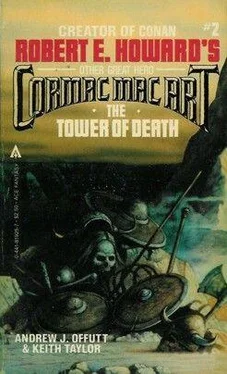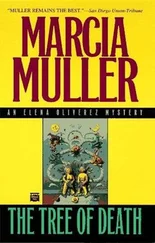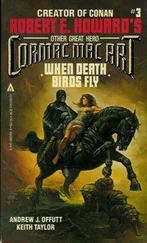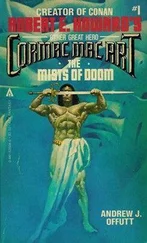Andrew Offutt - The Tower of Death
Здесь есть возможность читать онлайн «Andrew Offutt - The Tower of Death» весь текст электронной книги совершенно бесплатно (целиком полную версию без сокращений). В некоторых случаях можно слушать аудио, скачать через торрент в формате fb2 и присутствует краткое содержание. Жанр: Фэнтези, на английском языке. Описание произведения, (предисловие) а так же отзывы посетителей доступны на портале библиотеки ЛибКат.
- Название:The Tower of Death
- Автор:
- Жанр:
- Год:неизвестен
- ISBN:нет данных
- Рейтинг книги:3 / 5. Голосов: 1
-
Избранное:Добавить в избранное
- Отзывы:
-
Ваша оценка:
- 60
- 1
- 2
- 3
- 4
- 5
The Tower of Death: краткое содержание, описание и аннотация
Предлагаем к чтению аннотацию, описание, краткое содержание или предисловие (зависит от того, что написал сам автор книги «The Tower of Death»). Если вы не нашли необходимую информацию о книге — напишите в комментариях, мы постараемся отыскать её.
The Tower of Death — читать онлайн бесплатно полную книгу (весь текст) целиком
Ниже представлен текст книги, разбитый по страницам. Система сохранения места последней прочитанной страницы, позволяет с удобством читать онлайн бесплатно книгу «The Tower of Death», без необходимости каждый раз заново искать на чём Вы остановились. Поставьте закладку, и сможете в любой момент перейти на страницу, на которой закончили чтение.
Интервал:
Закладка:
It did not follow that Wulfhere and all the crew must reveal themselves. Cormac liked having surprises in reserve when he dealt with strangers-particularly on their territory.
“WULFHERE!” he roared. The stentor voice he used had done credit to the Danish giant himself. “Riders will be upon us directly! They needn’t know of all of us. Be getting half the men aboard Raven , sharp, ready to defend her or take to sea if need be. Do you and the others hide yourselves in yon patch of woodland! HIDE, I said! Be not arguing , man: hurry! ”
And to those with him the Gael snapped, “Come.”
While they made the swiftest descent they might, stamping and pounding down the tower’s innumerable steps, Cormac mac Art was still thinking and inferring.
Predatory kelp that climbed a twice-lofty tower to take its human victims… that smothered out beaconfires with great thoroughness and then went away … this argued intelligence to direct it. Its own? Seaweed? Was it belike a mindless vegetable mass in itself, whilst its master laired elsewhere, observing, directing-perhaps in the very city of Brigantium?
They reached the base of the tower and poured through the ironbound door.
Emerging from the tower of death, Cormac and his three faced a band of brightly-appareled Teutons who galloped down to the shore and hauled up with arrogantly superb horsemanship, to range themselves before the reivers. Staring. Waiting. Plainly these men were tense, and plainly it would take next to nothing to start them in to killing the strangers on their shore. As plainly, they were Sueves.
Moving toward them from the tower with deliberate slowness, Cormac studied the men of Galicia.
All were young, and warrior-nobles. Each bestrode a big Gothic destrier, dun or chestnut, whose harness flashed gems on leather well cared for by men in love with horses. A flame-red mantle was fastened upon their leader’s thick, broad shoulder by a golden brooch large as his hand, jewelled with garnets like shining droplets of dried blood. The tunics of him and his followers were of various hues, all bright; short of sleeve they were and hardly descending to the wearers’ bare knees. The borders of their green cloaks were crimson. Several wore shorter capes of wolf or fox fur as well. The sword each carried was a gift of his sovereign, mac Art knew, and could not be taken from these fiercely proud horse-warriors while they lived.
The hilts of those good swords thrust up from leather-covered wooden scabbards slung from baldrics and belted close on their hips; bright were those pommels, with decor of bronze and silver and gold. Sheathed at his belt each man wore a fighting knife as well; straight and heavy the vicious things were, and sharp enough along one edge for comfortable shaving. In the right hand every Sueve grasped an ax or nastily barbed spear. Shields with rims and bosses of gilded iron warded their left sides; these horses were trained to respond to voice and pressure of knee and heel.
Each man’s brown or yellow hair was coiled atop his bare head in a thick figure-eight knot that Cormac noted made all appear even taller than they were-though probably no whit fiercer.
They stared at the strangers in their land, having come from their tower.
In the last possible instant ere the silence must have been destroyed violently, the leader spoke.
“Who are you? Whence come you, and what do you here, strangers?”
The language on his tongue was a German dialect. Cormac, fluent in one such and with experience of others, was able to make answer.
“Cormac mac Art of Eirrin. It’s wind-driven I came here, in the ship you see yonder. As to what I do here-at present naught, save hope for a peaceful reception.”
Had Cormac been a praying man, surely he’d have prayed then, for Wulfhere to remain hidden and not launch one of the howling shield-charges that were his favourite tactic on land. These riders bristled suspicion as they did weapons, but the Gael had them talking.
“Is it right I am in thinking this land must be Galicia?”
The noble who led the horse-warriors laughed, showing big square teeth framed by tawny moustaches. A weapon-man he was in truth; this, Cormac could see in confirmation of his instincts.
“Aye! Galicia is it, and you must surely be from far away. You talk to Irnic Break-ax, cousin to King Veremund. I lead his comitatus .”
Cormac nodded. He was familiar with the word. A Latin borrowing, it was now common usage among the German nations, who applied it to an institution of their own; the king’s band of sworn companions. They ate with him, hunted with him, rode to war with him, and if Fate so required, died with him. There could be no greater disgrace upon a comes -companion than to save his own life from the fight wherein his lord had fallen. In return they received rich gifts and honour and the chance of an unforgotten name.
Irnic Break-ax spoke more: “Yet when I put question, what do you here? I did mean here , before this tower. Strangers may come to Brigantium in ships and be welcome. Strangers poking about the lighthouse be another matter.”
“Aye,” growled one of the comites . “None would do that for any good purpose.”
Others raised a mutter of agreement, and sounding through it came tones of unease and even fear.
Cormac asked bluntly, “Why?”
Irnic looked at him hard, obviously considering putting the sea-stained rogue in his place. Yet Cormac impressed as one who did not require to have this pointed out. Salt-crusted armour, faded nondescript cloak and all, he was a man who commanded other men. Irnic was such a man himself; he recognized the breed.
“Because,” he said, “the tower has of late become haunted and accursed.”
Cormac believed him.
“My lord Irnic, I never set eyes upon it erenow. Nor had I heard of it, save as a famous feat of building.”
“Mayhap. We will make investigation of that. Gisivald, look after our guests and see they do not grow lonely. No harm is to befall them.” Irnic’s unspoken “yet” hung in the air like a hanged felon, and yielded about as much comfort. “They are not, though, to go aboard their ship, nor is the ship to leave.”
Dismounting, he chose four men and led them into the tower of death. Cormac, Hrut, Hrolf and Knud stood well aside, in plain view of the score or so seafighters aboard Raven , the band of Suevic horsemen-and, so they judged and hoped, of Wulfhere and his small force within the nearby wood. The situation balanced on an ax-edge. Fortunate it was that all involved were used to such.
“Ahoy, Cormac!” Ivarr yelled from Raven’s low waist. “Ye bear weapons still, I see. Be ye needing help, or shall we bide as we are?”
The Danish words baffled Gisivald. “What said he?” the Sueve demanded.
“He’s asking if need is with us for rescue. Shall I answer him?”
“Aye-carefully.”
“Remain aboard, Ivarr! It’s none so bad our chances are, of seeing out the day with our weapons dry.” His words were uttered as much for Wulfhere as Ivarr of the sharp eyes. “It’s king’s men these be. I’m thinking when they leave we will have to go with them. Nor have I objection to that. Ah-should they be ordering ye to come ashore unweaponed, or to surrender Raven , ye know what answer to give, the very moment ye’re able to stop laughing.”
“That suffices,” Gisivald said sharply. Too prolix an exchange in a language he could not understand was not to his liking, and his voice and tone showed it plain.
In time, Irnic Break-ax’s head appeared over the tower’s rim, tiny as a fly against the shining blue above him. After shouting intelligence that Cormac possessed already, the Sueve made descent and emerged. Question and answer were bandied.
Читать дальшеИнтервал:
Закладка:
Похожие книги на «The Tower of Death»
Представляем Вашему вниманию похожие книги на «The Tower of Death» списком для выбора. Мы отобрали схожую по названию и смыслу литературу в надежде предоставить читателям больше вариантов отыскать новые, интересные, ещё непрочитанные произведения.
Обсуждение, отзывы о книге «The Tower of Death» и просто собственные мнения читателей. Оставьте ваши комментарии, напишите, что Вы думаете о произведении, его смысле или главных героях. Укажите что конкретно понравилось, а что нет, и почему Вы так считаете.












